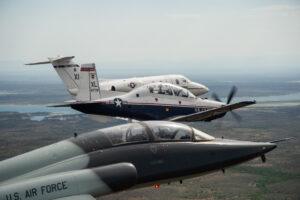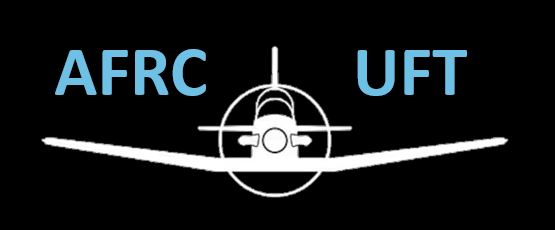8. ROTC (RCP-R)
 8.1. Overview. AFROTC cadets interested in commissioning directly into the Air Force Reserve as a rated officer should consider the ROTC Reserve Categorization Process – Rated (RCP-R) program. The RCP-R is part of the Total Force commissioning effort and is officially part of the Accessions Program Guidance Letter (APGL) requirements from AF/A1. RCP-R provides cadets the opportunity to apply for a rated position in the Air Force Reserve. The RCP-R selection board meets annually in mid-October. Applications must be submitted by COB, September 30th. Cadets applying to RCP-R are seeking a position in the Air Force Reserve, not the Air National Guard (ANG). Cadets wishing to seek a position in the ANG should contact an ANG recruiter. See below for RCP-R guidance.
8.1. Overview. AFROTC cadets interested in commissioning directly into the Air Force Reserve as a rated officer should consider the ROTC Reserve Categorization Process – Rated (RCP-R) program. The RCP-R is part of the Total Force commissioning effort and is officially part of the Accessions Program Guidance Letter (APGL) requirements from AF/A1. RCP-R provides cadets the opportunity to apply for a rated position in the Air Force Reserve. The RCP-R selection board meets annually in mid-October. Applications must be submitted by COB, September 30th. Cadets applying to RCP-R are seeking a position in the Air Force Reserve, not the Air National Guard (ANG). Cadets wishing to seek a position in the ANG should contact an ANG recruiter. See below for RCP-R guidance.
8.2. Prior to RCP-R Selection Board
8.2.1. Eligibility. Applicants must meet flight training eligibility requirements in Section 2.3. Applicants must be pre-categorization, meaning they have not yet been assigned an Air Force Specialty Code (AFSC). All applicants must request conditional release from Air Force Personnel Section (AFPC). See Section 4.4.3 for guidance on how to request conditional release. Cadets will complete a flight physical after they have been selected.
8.2.2. Sponsorship. For information on sponsorship, how to secure sponsorship, and what happens if a cadet does not get sponsored by track-select time at UFT, reference Section 3. Cadets do not need to be sponsored in order to apply to RCP-R, however sponsored applicants are given favorable consideration by the selection board. Note: Unsponsored applicants must be willing to accept an assignment to any non-fighter/bomber AFRC flying unit. AFRC non-training flying units may sponsor applicants at any time between the UFT board and 120 days prior to UFT graduation. At 120 days prior to UFT graduation, unsponsored students will be assigned to a squadron based on the needs of the AFR.
8.2.3. AFSC Preference. Cadets may apply for a pilot, CSO, ABM, or RPA position, in any combination or order of preference, and will only be evaluated for selection for the positions they apply for, in the order listed. For example, cadets wanting to apply only for pilot should select “pilot” in the first block on AF215 Item 7 and leave blocks 2-4 blank. Cadets wanting to apply for pilot with a secondary choice of CSO should select “pilot” in the first block, “CSO” in the second block, and leave the rest blank. In this case, if not selected for pilot, the board would automatically consider the cadet for a CSO position. Cadets wanting to apply for pilot with CSO secondary and ABM tertiary should select “pilot” in the first block, “CSO” in the second block, “ABM” in the third block, etc.
8.3. Selection Board
8.3.1. Application Submission. The AFR ROTC selection board meets annually in mid-October. Applications must be submitted by September 30th. For information on how to submit an application, reference Section 4.4. ROTC detachments should complete the Form 53 process as they would for an Active Duty-bound cadet, in the event the applicant is medically disqualified from aviation service. Medically-disqualified cadets may have the option to fill a non-rated AFR position, otherwise they will continue on an Active Duty track as a non-rated officer per normal ROTC procedures.
8.3.2. Selection Board. The AFR ROTC UFT selection board convenes once a year in October to select qualified AFROTC cadets. Board results are released to HQ AFROTC usually within a few months after the board, and the results memo will be posted in Section 5.5. If not selected for the RCP-R program, cadets may apply for an Active Duty rated position via the Active Duty rated board per the normal AFROTC process. Cadets selected for RCP-R should follow the steps set forth below.
8.4. Post-Selection Board
8.4.1. Admin. Upon notification of selection board results, cadre must ensure a selected cadet’s EA has been updated to “Reserve-Rated.” Cadets with a “Reserve-Rated” EA will not be reflected on the EAD spreadsheet and will not be classified into a Reg-AF Rated or Non-Rated Line AFSC. Dets must continue to support selected cadets with completing physical requirements, Reserve Service Commitment (RSC) contracts, security clearance (Secret only, unless sponsored by a unit requiring Top Secret), reserve commissioning, like any other POC cadet.
8.4.2. Flight Physical. Cadets selected for RCP-R should coordinate with their detachments to schedule and accomplish the appropriate Flying Class Physical. Once the flight physical is accomplished, it typically takes an average of 30-60 days to be stamped “certified” by AFRS/RSG, assuming no issues or waivers.
8.4.3. Contact AFR. As soon as the cadet’s flight physical is complete and certified (stamped approved for flight training), the cadet or detachment should notify AFRC Officer Accessions (AFRCRS.OfficerAccession@us.af.mil) and HQ AFRC/A3RB (HQAFRC.A3RB.UFT@us.af.mil). The cadet will be assigned an Air Force Reserve Officer Accessions Recruiter (OAR) who will contact the cadet to complete the required paperwork and prepare for accession into the AFR upon graduation. The cadet will sign a Reserve Service Commitment Contract. The contract states that completion of UFT will require a ten-year service commitment for pilot, or six years for CSO or RPA (same contract as active duty Air Force).
8.4.5. Sponsorship. If selected, the cadet should reach out to AFR flying units for sponsorship. The cadet should notify units of their selection on an AFRC UFT ROTC Board. See Section 3 for more information on how to pursue unit sponsorship. Cadets should remember that RCP-R is an Air Force Reserve flying training program, and the Reserve is a different component than the Air National Guard. Cadets should not seek sponsorship from an ANG unit.
8.4.6. Flying Training. The 340th Flying Training Group (340 FTG) at Randolph AFB manages all AFRC undergraduate flying training and will contact selected cadets near the spring semester of their senior year to facilitate accession into the AFR. Until then, cadets should continue to pursue their degree to the best of their ability. If a cadet will graduate during an odd semester (early or late) they should notify 340 FTG as soon as possible. It is strongly suggested that cadets not schedule any significant events (e.g. marriage, family trips, etc.) to occur after training begins. Cadets will enter a 1.5-to-2 year formal training program at a cost of nearly $2M, and it is imperative they provide maximum availability to attend all training requirements. Cadets without a private pilot’s license will be scheduled for Initial Flight Training (IFT) by 340 FTG. Cadets will not have a training pipeline scheduled until after they in-process with 340 FTG. The member’s military pay will begin when they are gained into 340 FTG. Members should make an effort to set aside a few months’ worth of living expenses in the event gaining delays occur.
8.4.7. Reserve Service Commitment (RSC) and Follow-On Status for ROTC UFT Board Selectees. ROTC cadets selected for AFR assignments will incur an RSC equivalent to what would have been their active duty service commitment (ADSC) for completing the AFROTC program, in addition to the RSC incurred for UFT. Cadets will attend undergraduate flying training (UFT) in an active-duty-for-training status. After completion of the UFT pipeline, graduates will remain in a full-time status for approximately one year of mission training with their unit of assignment. The remainder of any RSC will be served in either a full-time status as an Active Guard/Reserve (AGR) or ART, or in a part-time capacity as a Traditional Reservist (TR).
guid

